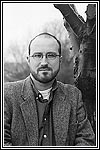 |
Vol 0, No 19 1 February 1999 |
| |
 C Z E C H R E P U B L I C :
C Z E C H R E P U B L I C :
The Public Turns against Havel Andrew Stroehlein The results of a public opinion poll released last week by the Czech Institute for Research into Public Opinion (IVVM), show that public confidence in President Vaclav Havel has dropped to only 46% - his lowest ranking ever. In another recent poll, 55% of Czechs said they thought President should consider resigning. At first glance such results may be considered a bit surprising; indeed, until relatively recently, Havel had been enjoying approval ratings of about 80%. However, further examination reveals the logic of these new poll results concerning the man who has always been more venerated abroad than at home. Of course, the importance of one or two public opinion polls should never be exaggerated, but 1998 was a rough year for Havel, and his reduced popularity is much connected to last year's events. At the beginning of 1998, Parliament re-elected Havel by a margin of one vote while one Member of Parliament was locked up in jail awaiting trial for a crime of which he was later acquitted. Many Czech citizens were not so bothered by this as the Member in question was a national hate-figure, Miroslav Sladek, leader of the far-right Republican Party. But the public was upset with Havel's wife Dagmar's behavior at the Parliament on the day of Havel's re-election, rudely whistling down a speaking MP, also a Republican. Such actions do not play well to a nation that likes to see itself as cultured and refined. The unpopular Dagmar has been a leading factor in Vaclav Havel's declining popularity. Recent allegations of an affair between Dagmar and a worker at the Presidential Office certainly haven't helped. Nor has their lawsuit against those who printed the story. It may well be that the entire scandal was an invention deliberately aimed to weaken the President, who has tried to become more politically involved this year. A second scandal, in which the President's Office mistakenly accused Helmut Zilk, former mayor of Vienna, of working with the Czechoslovak Communist secret police, was also likely a trap set by Havel's political enemies. But whether these events have indeed been directed attacks against the President or not, the damage to Havel's image has been done. Earlier in the year, the Havels' lawsuit against a shoe company's satirical billboard advertisement also did not play well with the Czech public. The 5 million Czech crowns the court awarded the presidential couple may indeed go to charity, but it would have been better to dedicate it to some more efficient PR for the Hrad. The Czech public saw the Havels' lawsuit as simply mean-spirited: can't they take a joke? Of the 55% of Czech citizens who told pollsters that Havel ought to consider resigning, 18% cited Havel's overall loss of prestige as their primary reason. 12% were unhappy with Dagmar's apparent influence on her husband. But by far the most common cause for public concern, cited by 52% of respondents, was Havel's health problems. After cancer surgery in 1996 and two operations related to a perforated intestine in 1998, Havel's worrying health has rarely been out of the news over the past two years. Every time the President catches flu, such as in mid-December, it is on the front page of most dailies. The media and the public are captivated by the medical reports. One of the recent polls asked whether people thought Havel should consider resigning, and, of course, any public official with serious health problems should consider resigning. The Czech Republic actually witnessed such an event in 1998 when the leader of the Christian Democrats and former Agriculture Minister, Josef Lux, publicly announced his resignation due to leukemia. No one could keep from comparing Lux's situation to Havel's. There seems to be a general, though unstated, public fear that if Havel stays on too long, the country will end up with a Central European Yeltsin. Andrew Stroehlein, 1 February 1999
|
|
![]()
Copyright (c) 1999 - Central Europe Review and Internet servis, a.s.
All Rights Reserved